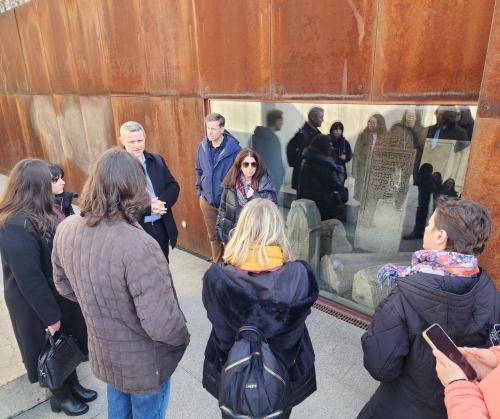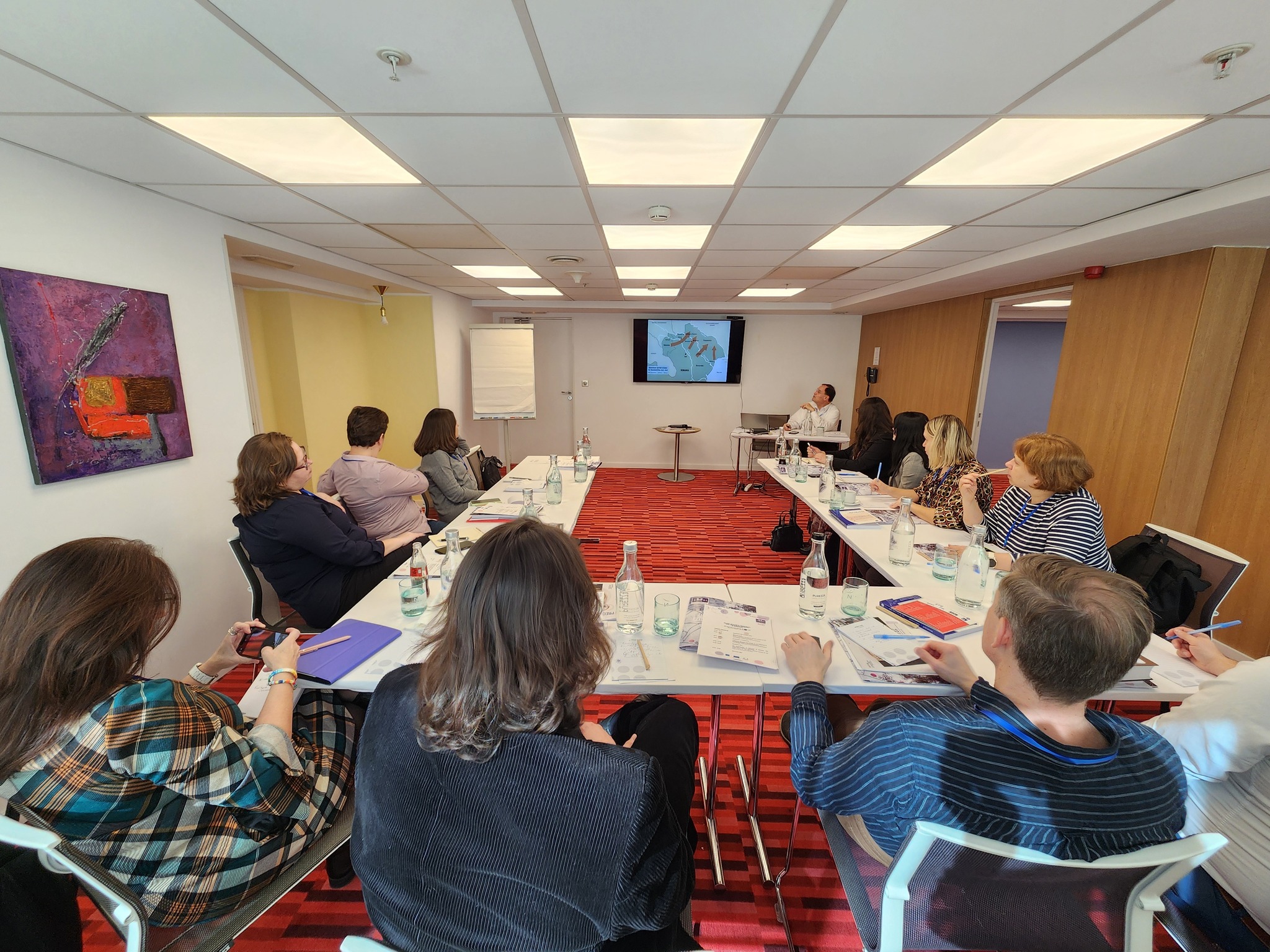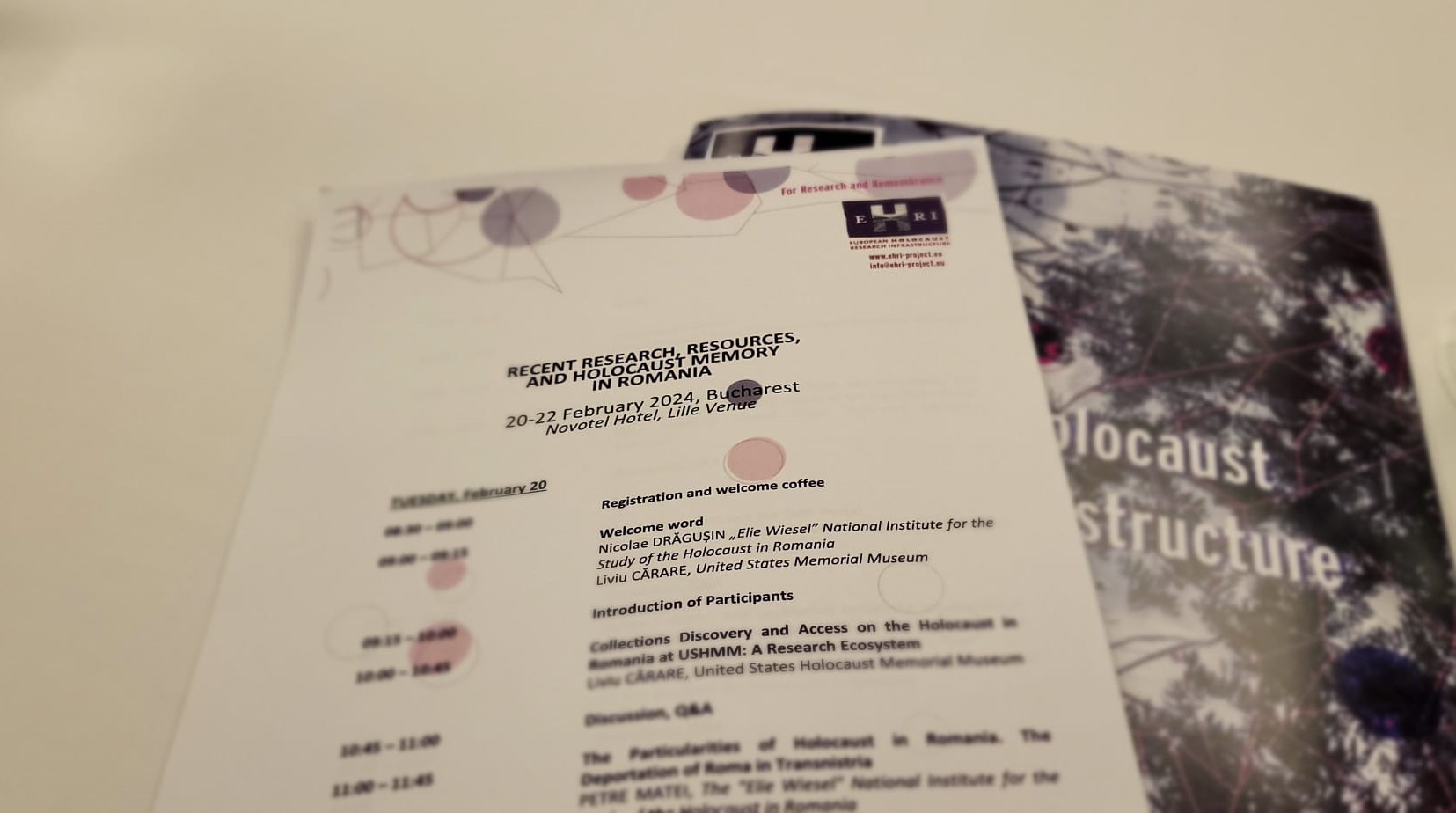Review | EHRI Seminar on Research, Resources and Holocaust Memory in Romania

The EHRI Seminar Recent Research, Resources and Holocaust Memory in Romania held in Bucharest, February 20-22, 2024, was organized by the Elie Wiesel National Institute for the Study of the Holocaust in Romania with the support of the US Holocaust Memorial Museum. Ten participants from Europe and the United States, including master's and PhD students, post-doctoral researchers, museum professionals, and educators, attended the seminar. During the three days, the participants had the opportunity to analyze methods, sources, and discuss new research regarding the Holocaust in Romania.
The seminar introduced the participants to the specificities of the Holocaust in Bessarabia, Bukovina, Transnistria, and Northern Transylvania. It also covered topics such as public debates on the legislative framework of citizenship for Romanian Jews, antisemitic legislation implementation, the deportation of Roma to Transnistria, Jewish forced labor in Romania, the fate of Soviet POWs, and microhistories such as the Chisinau ghetto and the Vapniarka camp. It also included a special presentation on mass graves forensic investigations conducted in Popricani (Iasi). The talks provided overviews of Holocaust-related records in various archives and insights into how the United States Holocaust Memorial Museum research ecosystem can be utilized. A presentation on the work undertaken by EHRI familiarized the participants with the EHRI Project and the EHRI Portal.
 "I am very glad to have taken part in the EHRI methodological seminar. The seminar brought together established scholars and young academics, together with educators and museum curators. This diversity of experiences and research paths allowed for fruitful discussions and precious exchanges of knowledge and histories. The study of the Holocaust in Romania has entered a stage of expansion, with broader thematic and theoretical scopes. These seminars are thus very important in connecting researchers working in different countries and continents, who can explore together the new directions of research, methodologies, and questions” – Anca Diana Axinia, Post-Doctoral Student
"I am very glad to have taken part in the EHRI methodological seminar. The seminar brought together established scholars and young academics, together with educators and museum curators. This diversity of experiences and research paths allowed for fruitful discussions and precious exchanges of knowledge and histories. The study of the Holocaust in Romania has entered a stage of expansion, with broader thematic and theoretical scopes. These seminars are thus very important in connecting researchers working in different countries and continents, who can explore together the new directions of research, methodologies, and questions” – Anca Diana Axinia, Post-Doctoral Student
The participants visited the Diplomatic Archives of the Ministry of Foreign Affairs in Romania, where they gained insights into the history of the repositories and collections containing Holocaust-related material. Additionally, they had a guided tour of the Holocaust Memorial in Bucharest, a monument unveiled in 2009, which is dedicated to the collective victims of the Holocaust in Romania.A
As part of the series of EHRI methodological seminars, the Bucharest event was successful in fostering fruitful discussions, presenting recent research projects, and sharing knowledge and experiences. It not only facilitated the exchange and debate of Holocaust research but also laid the groundwork for future projects and academic collaboration on related topics.
More reviews
"The visit to the Victim's Holocaust Memorial made the Seminar's theme 'tangible'. The contact with the USHMM database is so useful in researching and discovering materials! The EHRI presentation showed me that history unites people, concerned to give meaning to an incomprehensible 'phenomenon', the Holocaust.” - Diana Iancu, Curator
"The presentations of researchers helped me have a complex and a larger picture of Antonescu’s regime in Romania during the Holocaust, the significance of the Holocaust, and the importance of commemorating and remembering the victims. Moreover, I was interested in the topics presented because I was curious to know more about the Holocaust in Romania. For example, I was not very familiar with the Jewish situation in the area of Transnistria, and it was a great opportunity to learn more about it, so that I could help the high school teenagers to understand the Holocaust as a part of Romanian history, but also as a European one.[...] I learned a lot about the archival research infrastructure, also about methods, and sources related to the Holocaust in Romania. The information accumulated during the seminar is very useful in the historical research of the Holocaust, but also in educating future generations”- Bianca Antohe, Researcher
"This seminar was significant to my research in rediscovering the lived experiences of those in the past, with the aim of revealing how they interacted not only with each other but also with economic, demographic, political, and social structures, emphasizing an intensive study of places that have something special, but become so at some point in their historical evolution as a result of a trigger."- Ana Alexandra Uță, PhD Student

Images: thanks to the Elie Wiesel National Institute for the Study of the Holocaust in Romania
